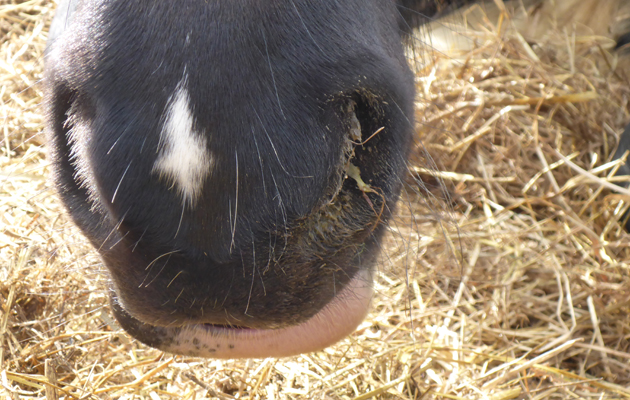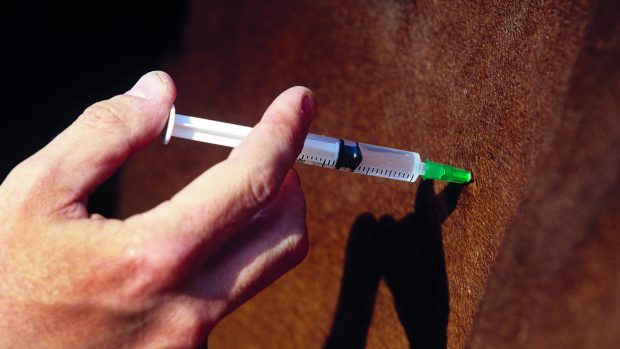An outbreak of equine herpes has been confirmed at a private yard in Bedfordshire.
It is understood to be the neurological strain of the disease (EHV-1).
A report from the Animal Health Trust said the organisation has confirmed a case of EHV-1 neurological disease affecting a non-vaccinated 19-year-old part-bred thoroughbred mare.
The outbreak is on a small, private yard with five horses and a lab test on a swab taken from the infected horse confirmed EHV-1 was present.
In a separate case, EHV-1 was also found to be present in a horse in Worcestershire earlier this month.
“For both cases, due to the presenting neurological signs, the attending vets collected blood samples and nasal swabs to determine if EHV was the underlying cause,” an AHT spokesman told H&H.
“The AHT carried out diagnostic tests and in conjunction with the presenting clinical signs and no recent history of vaccination, confirmed the diagnosis of EHV-1 neurological disease.
“The AHT is in regular contact with the veterinary surgeons involved, providing advice on outbreak management and diagnostic surveillance to minimise onward transmission.
“This outbreak is being closely monitored by all vets involved. As of 9 March, no further cases of EHV-1 have occurred on these two premises.”
He added biosecurity measures — including quarantine, further diagnostic testing and monitoring of the affected and in-contact horses — have been implemented and will be continued as necessary.
Related articles…
Related articles:
- Equine herpes virus: signs, treatment and prevention
- Equine herpes: all you need to know
- ‘Stop the vilifying’: owners urged to speak out to tackle disease outbreaks head-on
Veterinary practices in the surrounding areas have shared the news and information on what to do if owners suspect their horses might be infected.
“As for all infectious diseases, it is important for owners to be vigilant and monitor their horses for any signs of respiratory disease or changes in normal behaviour,” added the AHT spokesman.
“If anyone is concerned that their horse may have been exposed to EHV-1 or any other infectious disease, they should consult their vet for advice.”





